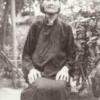Classical Daoism; is there really such a thing?
This is about part 4.3, definitely interesting aspects covered in this one.
http://warpweftandway.com/2013/12/02/classical-daoism-really/
Snippet below:
One needs to get beyond and prior to written 'text'... there is so much going on prior to written text...
I don't always agree with Derek Lin but I do agree with his points in here:
http://www.taoism.net/ikuantao/origin/home.htm
"Many people interested in the Tao are still under the impression that Lao Tzu founded Taoism about 2,500 years ago. There is some truth to this, as long as we are only talking about philosophical Taoism (Dao Jia) or religious Taoism (Dao Jiao). However, the one thing that most people do not realize is that both variants of Taoism came from a much older tradition, known to the Chinese simply as the Tao. It is not possible for Lao Tzu to be the founder of this ancient tradition for the simple reason that it began at least 2,300 years before his time."
"Essentially, the Tao Te Ching was written as a collection of teachings from the original form of Taoism. Lao Tzu presented these teachings in an organized and accessible format. His work revitalized and energized Tao cultivation, so its importance cannot be overlooked. At the same time, it's also important for us to recognize that Lao Tzu was not the one who "invented" concepts like wu wei,p'u, and ziran. Nor was he the first to talk about the significance of silence, harmony, intuition and emptiness."
This is not my division but I pointed out a site which has a division which seems one of the better. I personally don't quite see it so black and white; meaning, the gradient is much more gradual, continual and multi-colored.
I once said that Daoism seems to evolve as:
Primitive Naturalism > Divining and Mythology > Shamanism/Spiritualism > Political Philosophy > Alchemy > Religion > Dark Philosophy > Modern Philosophy
To me, it is not "When did folk religion become Daoism", but rather: When did Daoism reveal folk religion?
Folk Religion goes back to primitive cultures and that is where we need to look to understand the unfolding of Daoism and the eventual syncretic text known as the DDJ. LZ and ZZ both refer to those prior and that is something I won't overlook.
Hongkyung Kim provided this quote in his book on LZ:
Du Daojian (1237–1318) stated, “Laozi that the Han people discussed was Laozi of the Han dynasty; Laozi that the Jin people discussed was Laozi of the Jin dynasty; and Laozi that the Tang and Song people discussed was Laozi of the Tang and Song dynasties.”
He later said that one cannot prefer one period LZ at the expense another period LZ. I would content this basic point when looking at Daoism if one is to understand the entire history.
The evolving nature of how Daoism reveals itself means it inherently always has a prior and thus syncretic in nature. We see this in the LZ, ZZ, and how Sima Qian describes Daoist and thus how Huang-Lao is based.


